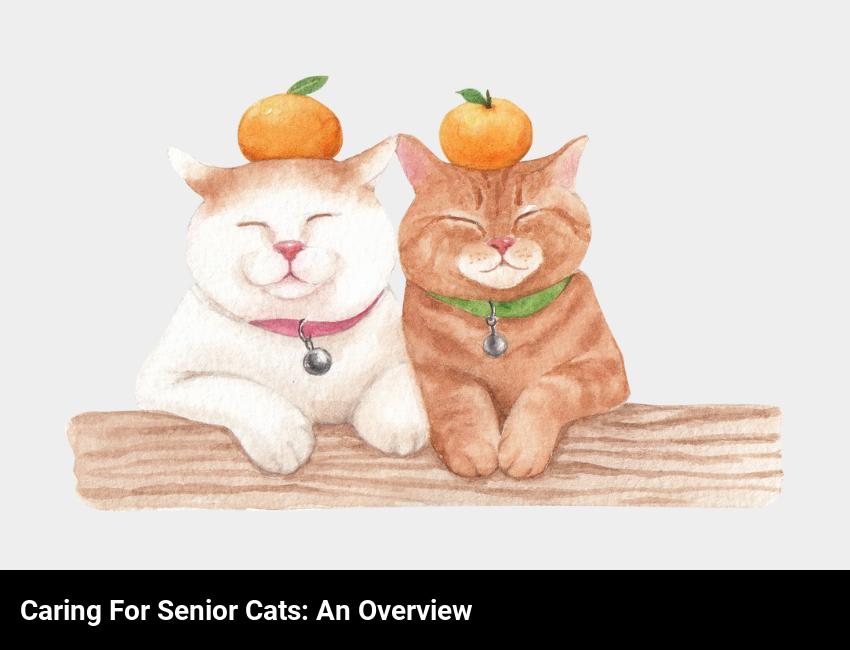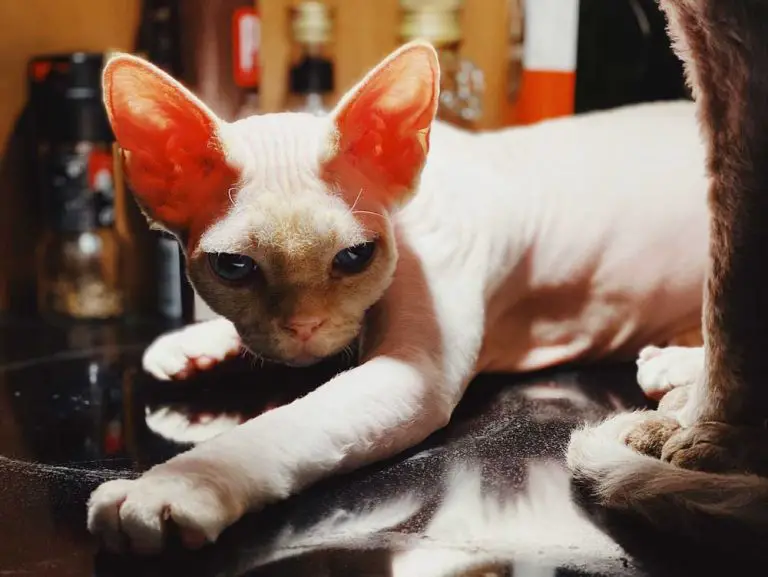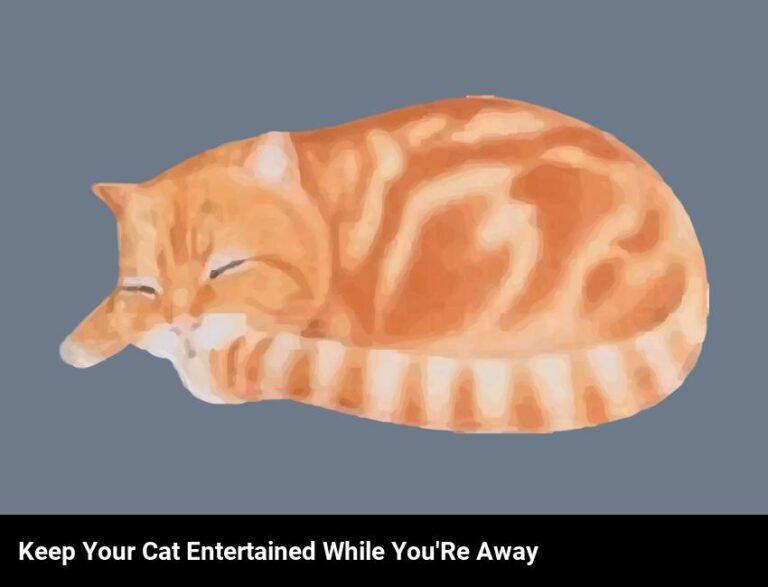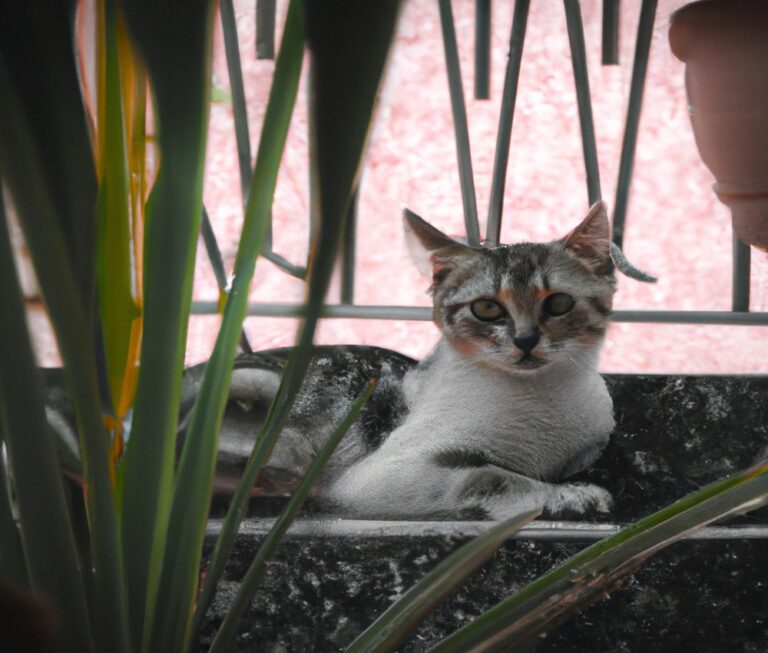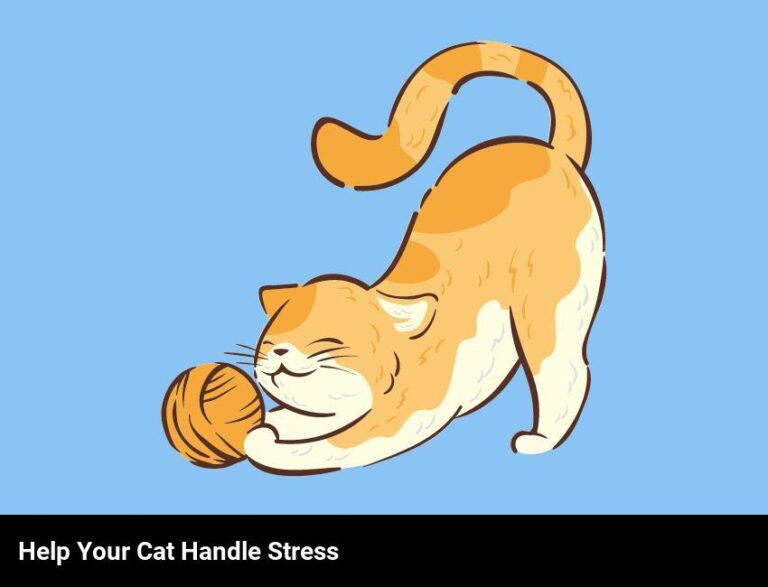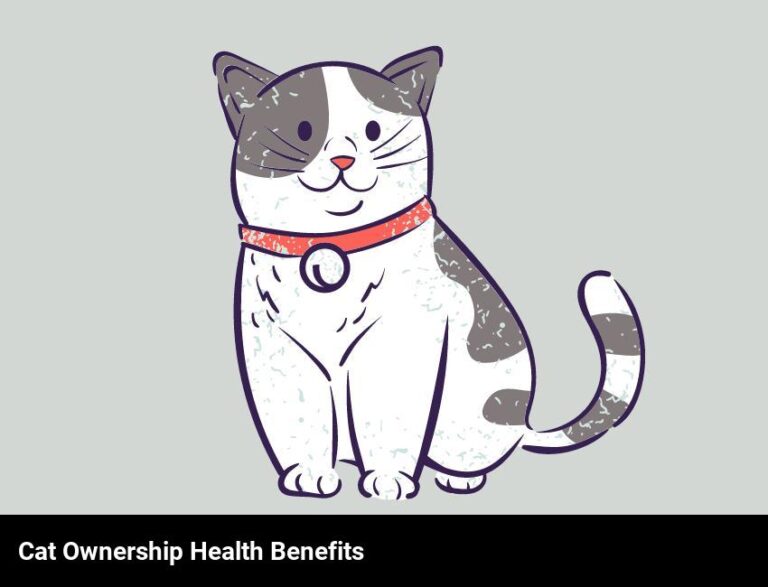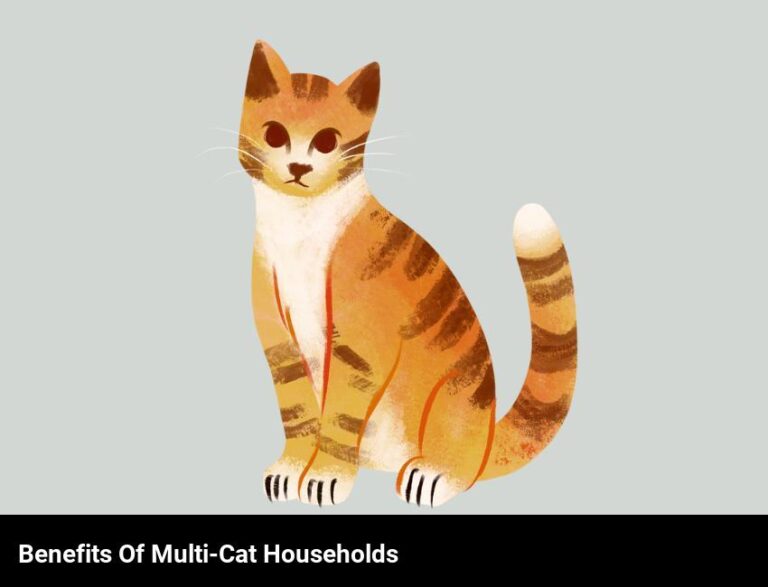Caring For A Senior Cat: What To Expect
Caring for a senior cat can be a rewarding experience. Expect senior cats to need more frequent veterinary visits, special diets, and potentially more medications. You should also anticipate less energy and activity, as well as changes in their sleeping, eating, and grooming habits.
As a pet owner, it can be difficult to watch your beloved companion age and grow old. Caring for a senior cat can be a special challenge, and it’s important to understand what to expect for your pet’s health and wellbeing. From common health issues to changes in behavior, providing your senior cat with a comfortable lifestyle is vital.
I’ve had the privilege of caring for a senior cat for many years, and I’ve learned a great deal about their needs in that time. In this blog, I’ll share my experience and discuss some of the best ways to provide adequate mental stimulation, nutrition, and care for your senior cat. I’ll also provide some tips on how to tell if your pet is in pain and how to keep them happy and healthy.
What are the common health issues that senior cats face?
When it comes to senior cats, it’s important to understand that there are some common health issues they may face. Many cats start to experience age-related changes after the age of seven, and those changes can include:
Weight Loss: As cats age, they may start to lose weight and muscle mass. This can be caused by decreased appetite, dental problems, or certain health conditions. It’s important to monitor your cat’s weight and discuss any changes with your veterinarian.
Arthritis: Joint pain is a common problem for senior cats, especially in their hips and shoulder joints. If your cat is showing signs of pain or stiffness, this could be a sign of arthritis. Your veterinarian can recommend a course of treatment for joint pain.
Thyroid Issues: Senior cats may have an increased risk of hyperthyroidism and hypothyroidism, both of which can cause weight loss, increased thirst, and other changes in your cat’s behavior. Your veterinarian can test your cat’s thyroid levels to diagnose and treat the issue.
Kidney Disease: Kidney disease is a common problem in senior cats. Symptoms may include increased thirst, vomiting, and weight loss. Early detection and treatment is important to keep your cat healthy.
Dental Problems: Dental issues are common in senior cats, and can cause severe pain and infection. Regular dental check-ups and cleanings are important to keep your cat’s teeth and gums healthy.
Cancer: Cancer is a serious health issue for senior cats, and can cause a variety of symptoms. Early detection and treatment is important for the best possible outcome.
By understanding the common health issues that can affect senior cats, you can better prepare yourself to care for your aging feline friend. Be sure to monitor your cat’s health and behavior, and contact your veterinarian if you have any concerns.
What changes in behavior should i watch out for in a senior cat?
As a cat owner, it’s important to be aware of the changes in behavior that come with age in cats. Your senior cat may act differently than when they were younger, and it’s important to pay attention to any changes you observe.
One of the most common changes you may notice in a senior cat is a decrease in energy levels. They may sleep more, and they may not be as active as they used to be. This is a normal change that comes with age, and it’s important to make sure they still get the proper amount of exercise.
Another change you may observe in a senior cat is a decrease in appetite. Cats may start eating less, and they may need a different diet than when they were younger. You may need to switch to a senior cat food to ensure that your cat gets enough nutrition.
In addition to changes in energy levels and appetite, senior cats may also start having issues with grooming. They may stop grooming themselves as much as they used to, and their fur may become matted and dirty. You’ll need to brush them more often and perhaps give them regular baths to keep their fur clean.
Finally, senior cats may become more vocal than when they were younger. They may meow more often and louder, and they may scratch at their litter box more. This could be a sign of a medical condition, so be sure to talk to your vet if this happens.
By paying attention to these changes in behavior and making sure your senior cat gets the right care, you can help your cat stay healthy and happy as they age.
What are the best ways to give my senior cat a comfortable lifestyle?
As a cat owner, you want your senior cat to have a comfortable lifestyle. There are a few key things that you can do to ensure they are as comfortable as possible.
First, provide your cat with a warm, comfortable place to sleep. Make sure their bed is in a warm, quiet spot that is away from drafts. This will help them sleep soundly and give them a place to relax during the day.
Second, keep the litter box clean and easily accessible. This is especially important for elderly cats, as they may not be able to climb stairs or jump up to higher spots. Keep the litter box in a low, easy-to-reach spot and clean it regularly.
Third, provide your cat with plenty of play and exercise. This is important for cats of all ages, but especially for senior cats. Taking them for regular walks or playing with them every day can help keep them active and healthy.
Fourth, make sure your cat is getting the proper nutrition. As cats age, their nutritional needs change. Talk to your vet about what type of food and supplements your cat should be eating.
Finally, make sure you are providing your cat with plenty of love and affection. Elderly cats may not be as active as younger cats, but they still need attention and love. Spend time with your cat each day and give them lots of cuddles and love.
By following these simple tips, you can ensure that your senior cat has a comfortable lifestyle.
What tips can i use to make sure i’m providing the best care for my senior cat?
Take your senior cat to the vet regularly: As your cat gets older, it’s important to get them checked for any health issues at least once a year, or more depending on your vet’s advice. This will help to detect any potential illnesses early, so that you can get them the treatment they need.
- Ensure adequate hydration: Make sure your cat always has access to fresh, clean water. This is especially important for older cats, as dehydration can occur quickly when you least expect it.
- Keep up with grooming: Regularly brushing and combing your senior cat will keep their fur and skin healthy. It will also help to remove any unwanted hair or dirt, which can cause skin irritation or infections.
- Exercise your senior cat: Exercise is essential for keeping your senior cat healthy. Take them out for a walk (if they’re comfortable with it) or provide them with a safe, enclosed place to explore and play.
- Provide a healthy diet: As cats age, their dietary needs change. Be sure to provide a diet that is suitable for your senior cat and contains all the necessary nutrients. Consult your vet to discuss the best diet for your cat.
- Offer plenty of love and attention: Your senior cat needs extra love and attention. Spend quality time with them, cuddle them, talk to them, or simply keep them company. Cats love companionship and it will help to keep them happy and healthy.
How can i provide adequate mental stimulation for my senior cat?
As your cat ages, it is important to provide them with adequate mental stimulation to keep them engaged. Here are some simple activities that can help keep your senior cat entertained while providing them with the mental stimulation they need:
- Playtime with your cat. Playing with your cat is one of the best ways to provide mental stimulation. You can use an interactive toy such as a wand toy to engage your cat’s hunting instincts while they play.
- Puzzle toys. Puzzle toys are an excellent way to provide your senior cat with mental stimulation and keep them engaged. Puzzle toys can encourage problem solving, and give your cat something to work towards.
- Cat TV. Setting up a bird feeder outside a window or using a projector to project images of birds and other wildlife can provide your senior cat with hours of entertainment.
- Food puzzles. Food puzzles can also provide your senior cat with mental stimulation. These types of toys are designed to make your cat think and work for their food.
- Stimulating your cat’s senses. Catnip and other scents can also provide mental stimulation for your senior cat. Many cats also enjoy being brushed or petted.
By providing your senior cat with adequate mental stimulation, you can help keep them entertained and engaged. These simple activities can help keep your senior cat happy and healthy for years to come.
Do senior cats need different nutrition than younger cats?
Yes, senior cats do need different nutrition than younger cats! As cats age, their nutritional needs change, and providing them with foods that appropriately meet those needs is important for keeping them healthy. Senior cats may benefit from reduced fat and carbohydrates and increased levels of protein. They may need fewer calories, and they may need food that is easier to digest. Specialized senior cat food is formulated to meet the needs of older cats, but you’ll want to talk to your vet to make sure it’s right for your pet.
In addition to the nutritional needs of senior cats, their daily eating habits may also change. Eating can become more of a challenge for older cats, so it’s important to make sure their food is easy to chew and swallow. Wet food is often a better option than dry food for older cats, and offering warm food can help make it more appealing. Some senior cats may also need to eat more frequently, so they can absorb more nutrients.
Finally, it’s important to make sure that your senior cat has access to plenty of fresh water. Older cats may be less likely to drink water, so it’s important to place multiple sources of water around the house, and make sure the water is changed frequently.
When caring for a senior cat, it’s important to understand their changing nutritional needs. With the right diet and other care, you can help ensure that your senior cat enjoys a happy, healthy life.
How can i tell if my senior cat is in pain?
As your cat ages, it’s important to be aware of any changes in their behavior or physical appearance that may indicate they’re in pain. Common signs of pain in senior cats include:
* Changes in grooming habits – cats groom themselves to stay clean and comfortable, so if you notice your cat isn’t grooming itself as much, or is grooming itself excessively, it could be a sign they’re in pain.
* Loss of appetite – senior cats that are in pain may have decreased appetite and lose weight more quickly than usual.
* Changes in vocalizations – cats may meow more than usual, as if asking for assistance, or may be more vocal in other ways, such as hissing, growling, or yowling.
* Changes in behavior – if your senior cat is usually active and playful, but suddenly becomes lethargic, it could be a sign of pain.
If you’re concerned that your senior cat may be in pain, be sure to take them to the vet for a checkup. Your vet will be able to diagnose any underlying causes and recommend appropriate treatments. In the meantime, make sure they’re comfortable by providing warm and cozy places to sleep, such as a soft blanket or cushion.
How can i keep my senior cat healthy and happy?
It’s so important to make sure your senior cat is healthy and happy! The first step is to make sure they’re getting regular check-ups at the vet. This can help you identify any problems they may be having early on and get the treatment they need. Additionally, make sure they’re eating the right food for their age. Talk to your vet about what food is best for your senior kitty.
It’s also important to provide your senior cat with plenty of mental stimulation. Spend time playing with them, giving them interactive toys, and brushing them. This will help keep them active and alert. Make sure they have plenty of places to rest and hide as well.
Finally, keep your cat’s environment as stress-free as possible. This means introducing new people, animals, and objects gradually and giving them the space they need when they want it. If you have more than one pet, make sure they’re getting along and providing them with separate food and water bowls.
By following these steps, you can help make sure your senior cat is healthy, happy, and content.
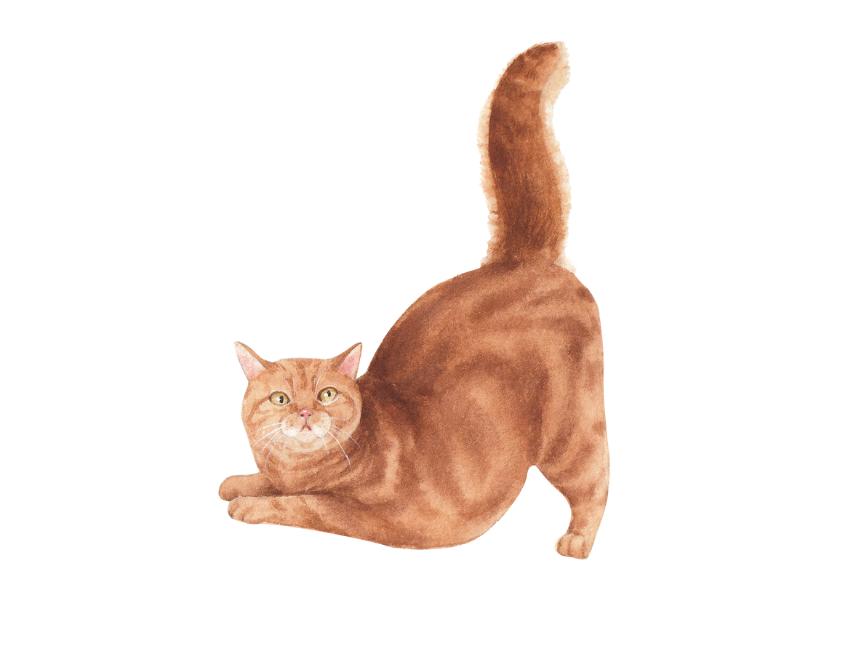
Frequently Asked Questions
What special needs should you be aware of with a senior cat?
When caring for a senior cat, it’s important to be aware of any special needs they may have. These may include changes in diet, providing easier access to litter boxes, more frequent trips to the vet, and more frequent brushing to reduce hairballs. Additionally, they may require more frequent grooming, as well as more frequent playtime and cuddles to keep them feeling active and content.
How can you tell if your senior cat is feeling well?
If your senior cat is feeling well, they may show signs such as grooming more often, playing, interacting with you, and having a healthy appetite. Other signs of good health in a senior cat include a glossy coat, bright eyes, and clear energy levels. Pay attention to your cat’s behavior, and if you notice any changes in their daily routine, it’s best to check with your veterinarian.
Are there any ways to help reduce stress in a senior cat?
Yes, there are several things you can do to help reduce stress in a senior cat. Providing a quiet and comfortable environment with minimal changes can help reduce anxiety. Offering extra cuddles and playing calming music can help create a more relaxed atmosphere. Additionally, introducing a new cat slowly and providing interactive toys can help stimulate your senior cat and promote healthy mental and physical activity.
What age is considered senior for cats?
Generally, cats are considered senior once they reach the age of 11. As cats age, they may require more frequent visits to the vet and may experience changes in behavior, so it’s important to be mindful of their needs.
Are there any special grooming needs that come with a senior cat?
Yes, senior cats may require special grooming needs due to age-related changes. Senior cats may have more difficulty grooming themselves, so regular brushing and grooming is essential. You may need to trim their nails more often, and pay special attention to their teeth. Additionally, you may need to keep an eye out for any lumps, sores, or other changes in their fur or skin. Taking care of your senior cat’s grooming needs helps ensure their health and comfort.

